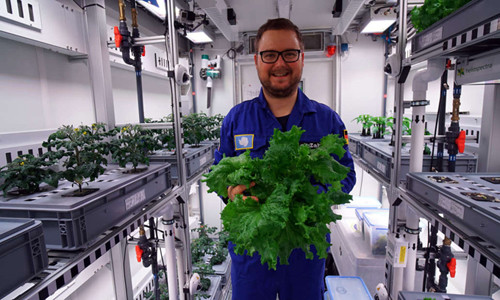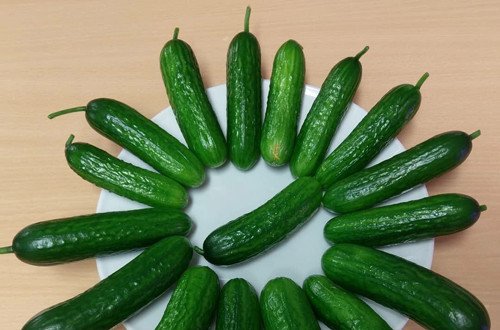Unique, strange way to grow vegetables without soil and sunlight
The research team used hydroponics combined with many modern techniques to help vegetables grow in the laboratory.
|
Scientists harvest vegetables grown in Antarctica. |
Scientists at Germany's Neumayer III research station in Antarctica harvested 3.6 kg of raw vegetables, 18 cucumbers and 70 radishes,Science AlertThey are grown in the EDEN-ISS laboratory without soil, sunlight or pesticides.
Successfully growing vegetables under these conditions could be useful for long-duration missions to the International Space Station (ISS) or further afield targets such as the Moon and Mars.The team used a system of recycled nutrients and water, while optimizing LED lighting and carefully monitoring CO2 levels in the room based on hydroponics.
|
The first cucumbers were harvested from the laboratory. Photo:DLR. |
“After planting the seeds in mid-February, I had to deal with some unexpected issues like minor system failures and the strongest storm in over a year. Luckily, we were able to overcome and overcome everything,” said Paul Zabel, an engineer involved in the project.
This harvest is just the beginning. Scientists hope to grow 4-5 kg of vegetables per week until May, according to the German Aerospace Center, which is coordinating the project. This is not the first time vegetables have been grown under similar conditions. Experts on the International Space Station (ISS) have been experimenting with growing vegetables since 2015.
However, this project focuses on producing a wider variety of vegetables such as radishes, greens, tomatoes, cucumbers, peppers, herbs. Growing a variety of vegetables in Antarctica, where the outside temperature drops below -20 degrees Celsius, is a remarkable achievement.
The team is also experimenting with growing strawberries. "You have to be patient when growing strawberries. We're still waiting for the seeds to be successful," said project manager Daniel Schubert.




